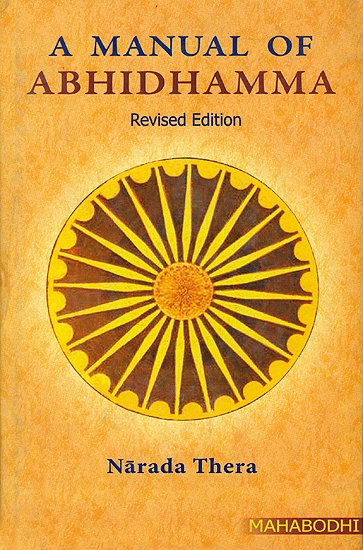Abhidhamma in Daily Life (by Ashin Janakabhivamsa)
by Ashin Janakabhivamsa | 66,666 words
English translation of "Abhidhamma in Daily Life" by Professor Ko Lay. Revised by Sayadaw U Silananda, International Theravada Buddhist Missionary University, Yangon, 1999...
Factor 3 - Sanna (cognition, perception, memorizing, recognition)
Sañña cetasika means memorizing, recognizing, or noting. Even unintelligent and dull persons have sañña because they can memorize some names and ideas. When children are told, “This is your father, this is your mother”, they store in their memory, “Papa” and “Mama”; when children see an aircraft they note with sañña cetasika that is an aircraft; those are wings, this is the fuselage, etc. When they visit a strange town they readily note landscapes, buildings and scenes. So, for everybody sañña functions in diverse ways.
Sañña affords two advantages - when a child comes to know a person as his father; he becomes to know him as his father at that time. At a later time too he remembers that person as his father. So sañña serves two purposes.
Sañña is different from paññá which recognizes only what is good. But sañña memorizes both good and bad, right and wrong. Due to false notions one will make mistake a tree-stump for a ghost at night. This is wrong recognition. People who believe the wrong to be right, the immoral to be moral are misled by ditthi cetasika as well as sañña cetasika. Such false faiths and wrong views are very difficult to correct or to reform when their sañña is very strong.
The Wide Range of Sañña
Sañña sometimes take false doctrines to be the ones so they cause endless sufferings in samsara. It is not only ditthi (wrong view) and tanha (lust) but also sañña (perception, recognition) that causes sufferings. For example, human beings find feces disgusting. Yet for maggots and worms feces is good food. Another example is the vulture which relishes on decaying dead bodies.
Only Buddhas and Arahants see the actual, truthful nature of all phenomena. Only such puggalas realize that all sensual pleasures are loathsome, and disgusting. The Buddha declares, "All sensual pleasure as vile and base, being the concern of common folk, indulged in by ordinary common worldlings, not pursued by noble one, not tending to one’s own interest. The Noble Ones positively denounced all forms of sensual pleasures.
Yet many people do not follow the teachings of the Buddha. Most people are hotly pursuing various versions of sensual pleasures. Due to the misconception of the sañña, they are prolonging their suffering in samsara.
Sañña Mistaken As Sati
Recalling one’s virtuous deeds is due to sati (mindfulness), as well as to sañña. But true mindfulness occurs only in the realm of kusala (good deeds). However, there are also false sañña and unreal sati too. Remembering one’s first love for many years is akusala (unwholesome); it is not real sati. It is just the function of sañña in the disguise of sati. Please refer back to the function of false sati as mentioned in the relevant chapter.
